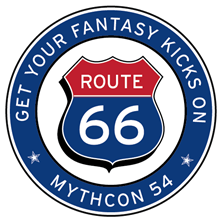Abstract
Empirical studies have found that young people do not conceptualize adulthood as something achieved by reaching various traditional milestones, but rather as the result of more intangible psychological processes. They overwhelmingly agree on the importance of two aspects: taking responsibility for the consequences of one’s actions, and developing personal beliefs and values independently of one’s parents or other influences. This paper explores the role that responsibility and critical thinking (as prerequisite to developing personal beliefs) play in the coming of age of the protagonists of two young adult fantasy series: Tiffany Aching in Terry Pratchett’s Discworld novels and Nathaniel in Jonathan Stroud’s Bartimaeus trilogy. While Pratchett and Stroud approach these issues from opposite directions—with one protagonist willing to take on responsibility and think independently, and the other long refusing to do so—they both essentially advocate the same values, suggesting that responsibility and critical thinking are not only markers of adulthood, but markers of being a good person. Both promise young readers that accepting responsibility and questioning the things they are told may not always come easy, but that doing so is inherently empowering.
Creative Commons License

This work is licensed under a Creative Commons Attribution-NonCommercial-No Derivative Works 4.0 International License.
Copyright held by Artist


